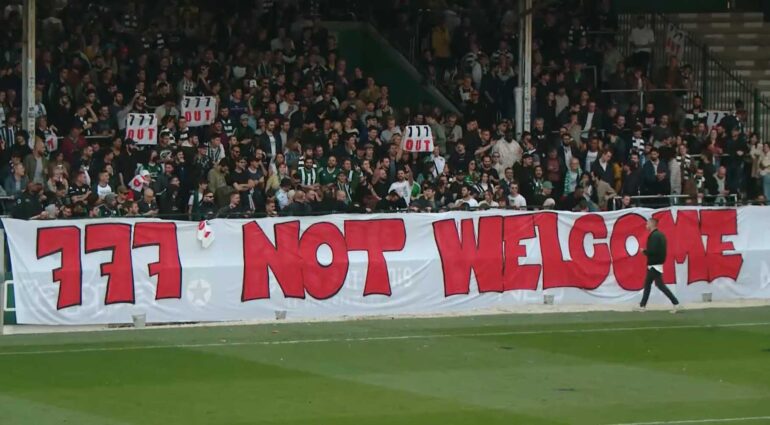Roll up. Roll up. 777 Partners are being forced to auction off all of their shares in all of their football clubs, with a sale to be completed this week.
By Paul Brown and Philippe Auclair
Tomorrow, on Friday 6 June at 10:00 Eastern Time in the USA at the offices of Cadwalader, Wickersham & Taft LLP in New York, a public auction will take place.
Up for sale are all the shares still held by 777 Partners in Genoa CFC, Sevilla, Standard de Liège, Red Star, Vasco da Gama, and Hertha Berlin. “Qualified bidders” are invited to submit offers by Zoom if they cannot attend in person.
Read also A letter from Philippe Auclair
How did it come to this? After all, back in August 2023, hadn’t Josh Wander, the co-founder of 777 Partners, rhetorically asked the Financial Times: “Is there anyone in the world that’s been more serious about buying football clubs in history?” To which the answer must now be: “Yes, probably”. The sad truth is that the company has been dying a slow death for months as creditors close in and judgements pile up ahead of what is now an inevitable bankruptcy, and for the football clubs at least, time has caught up with them. Josimar first revealed how, despite claiming they only spent their own money, 777 Partners were actually being secretly bankrolled by New York insurance firm A-CAP, which funded a series of risky investments



